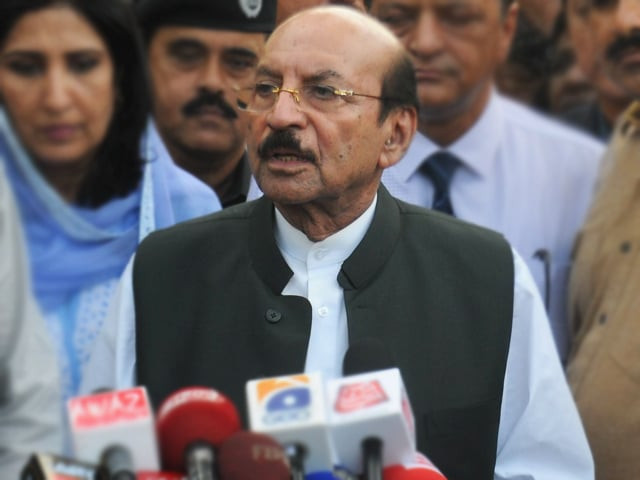‘Misappropriated’ land: SC questions CM’s ‘absolute’ authority to allot state lands
Judges dismiss the records of 108 Dehs produced by a private consultant.

"The land records can be reconstructed without any delays since the microfilm of records between 1980 and 1995 are still intact," Justice Amir Hani Muslim. PHOTO: EXPRESS/ FILE
“Power means trust, not absolute discretion,” observed the apex court’s three-member bench, comprising Justice Anwar Zaheer Jamali, Justice Khilji Arif Hussain and Justice Amir Hani Muslim. In 2011, when the SC took suo motu notice of the spiralling graph of targeted killings in the port city, it had found that turf-war between various gangs involved in land grabbing was one of the reasons behind the lawlessness.
The Sindh revenue board was ordered to cancel the allotments of precious state lands, register unregistered state lands and also reconstruct the missing records, which were said to have been lost during the arson riots following the assassination of former premier Benazir Bhutto.

The bench found in official reports that illegal allotment of lands had increased during the year 2011 and 2012 but the authorities had not given any cognisable reason. The reports revealed that 1,200 to 1,300 acres of land in Karachi had been allotted to private individuals illegally and at cheap rates.
The judges were shocked over the manner in which state lands were being allotted to individuals for residential use at throw-away prices for the past 30 years. Later, the period of lease allotment was extended up to 99 years and people started using this property for commercial purposes in violation of the government policy.
They noted that precious state lands were being sold at throw-away prices and people were deliberately being kept away from the process, which also resulted in revenue losses. “We intend to revisit the provisions of the policy,” stated Justice Muslim, who as a judge of the Sindh High Court had passed various orders to survey state lands and document them.
Advocate general Khalid Khan informed them the revenue department had issued orders to cancel all such allotments made in violation of the rules.
Land record reconstruction
Nazar Muhammad Leghari, a private consultant who is heading court-appointed commission on land registration, informed that record of 108 Dehs lost in arson riots had been reconstructed. Meanwhile, the records of 83 Dehs has yet to be reconstructed, he added. The bench rejected, however, the records of the 108 Dehs and said it was full of flaws.
Justice Muslim pointed out that the department’s own officers were deliberately delaying the completion of record reconstruction despite the fact that the exercise could be undertaken at the earliest with help of the microfilm of government lands, which was regularly produced between 1980s and 1995, and is still intact.
The SC also came hard on the revenue board’s secretary Muhammad Nawaz for being unaware of the facts and rules. It ordered the revenue department authorities to provide a list of officers responsible for delaying the reconstruction of lands records so it can initiate separate proceedings against them for deliberately defying court orders. It also directed the revenue secretary to submit a proposal to constitute a cell to complete the exercise as soon as possible.
Published in The Express Tribune, July 16th, 2013.


















COMMENTS
Comments are moderated and generally will be posted if they are on-topic and not abusive.
For more information, please see our Comments FAQ